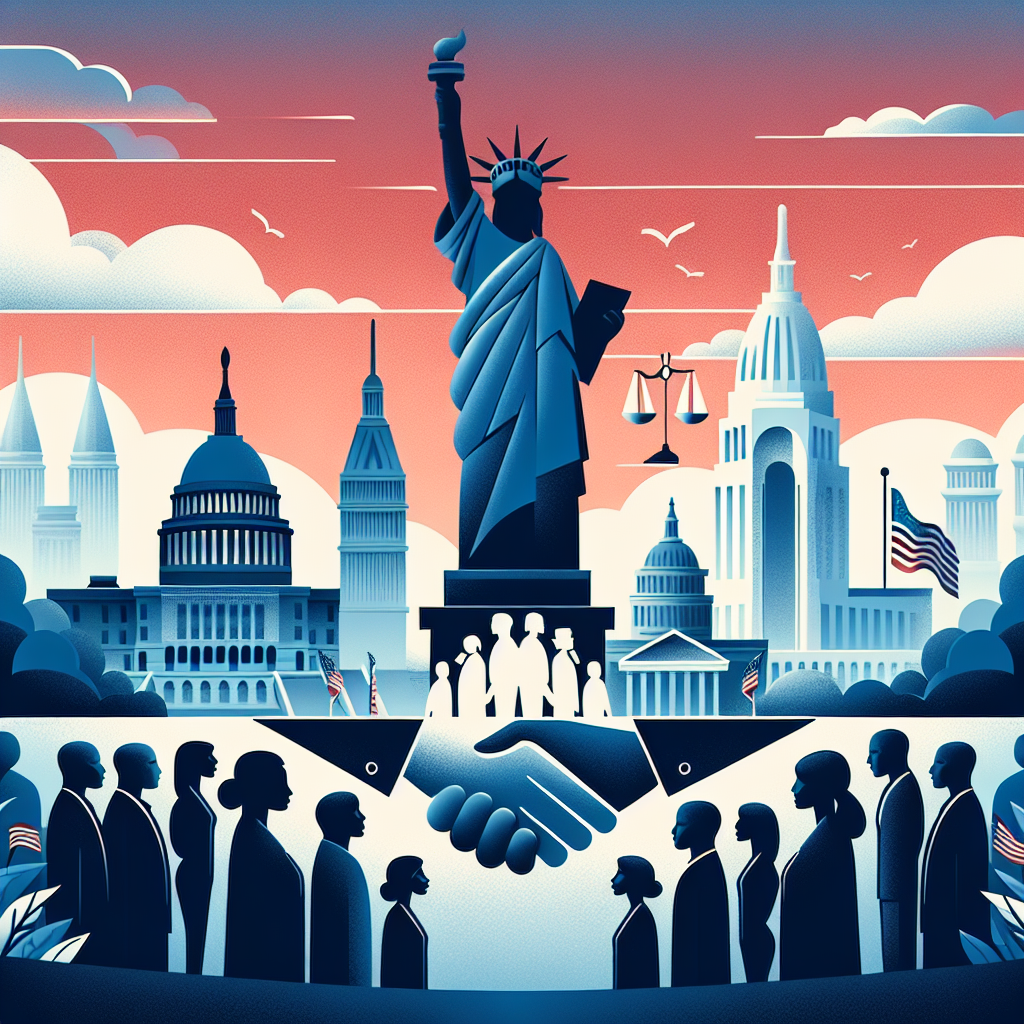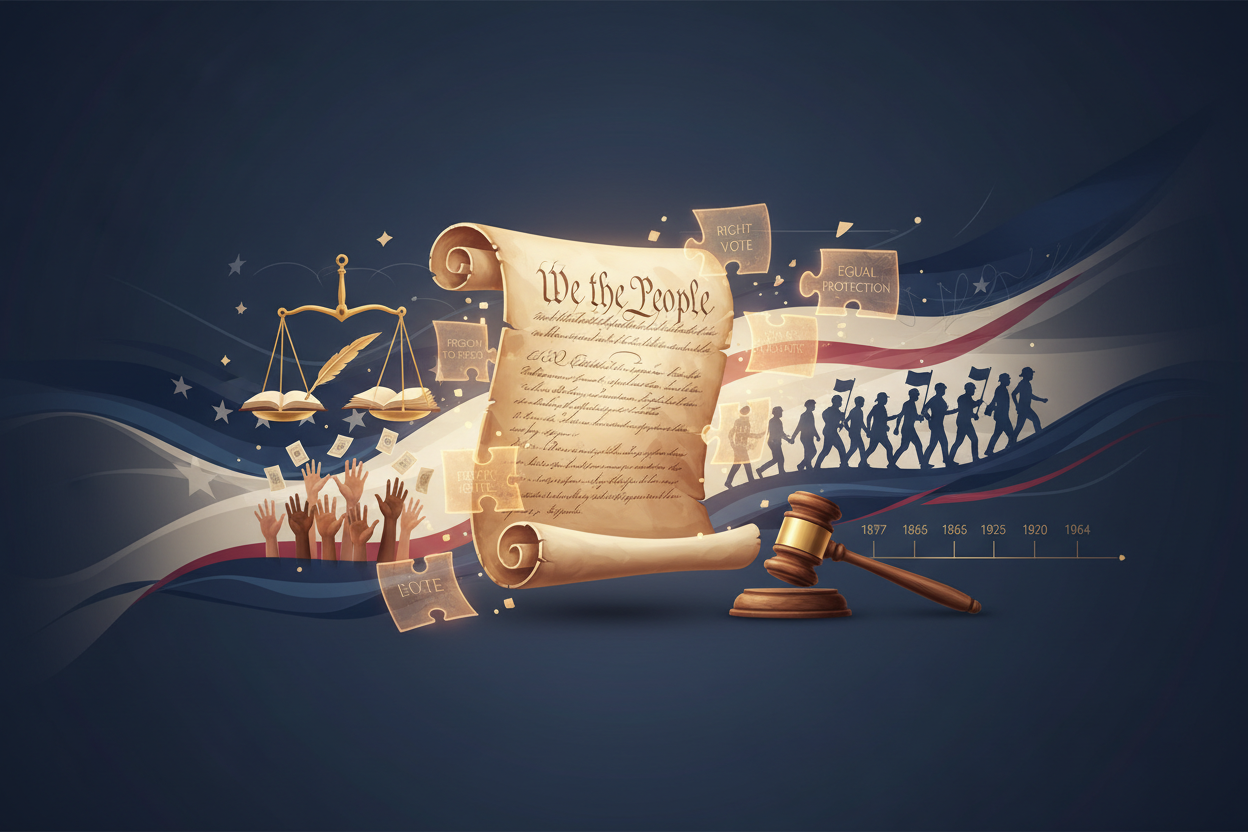Political Rights in America: What You Need to Know
In the United States, political rights are fundamental to the democratic process and ensure that citizens have a voice in shaping their government. These rights are not only a cornerstone of American democracy but also a reflection of the nation’s commitment to freedom and equality. Understanding these rights is crucial for every citizen who wishes to participate actively in the political landscape. This blog post will delve into the essential political rights in America, providing you with a comprehensive understanding of what they entail and why they matter.
The Right to Vote: A Fundamental Freedom
The right to vote is perhaps the most recognized political right in America. It’s the primary means by which citizens influence government and policy. This right is enshrined in the Constitution and has been expanded over the years through various amendments. For instance, the 15th Amendment prohibited voting discrimination based on race, while the 19th Amendment granted women the right to vote. The Voting Rights Act of 1965 further reinforced these protections, ensuring every American has a fair opportunity to cast their vote.

Freedom of Expression: The Backbone of Democracy
Freedom of expression is another critical political right, encompassing the freedom of speech, press, assembly, and petition. This right allows individuals to express their opinions, criticize the government, and advocate for change. It’s protected under the First Amendment of the U.S. Constitution and is vital for maintaining an informed and engaged citizenry. Whether through protest, writing, or digital media, freedom of expression empowers people to influence public discourse and hold leaders accountable.
The Right to Run for Office: Shaping Leadership
Another essential political right is the ability to run for public office. This right enables citizens to directly participate in government decision-making and represent their communities. Running for office is not just about winning; it’s about presenting ideas, advocating for change, and inspiring others to engage in political processes. The qualifications for candidacy vary by position but generally include age, residency, and citizenship requirements.
Access to Information: An Informed Public
A well-informed public is crucial for a functioning democracy, which is why access to information is considered a political right. This includes transparency from the government regarding policies, actions, and decisions that affect the public. Laws like the Freedom of Information Act (FOIA) enable citizens to request access to federal agency records, ensuring government accountability and transparency. In today’s digital age, access to information extends to the internet and media, reinforcing the public’s ability to make informed decisions.
Protection Against Discrimination: Ensuring Equality
Political rights are not meaningful if they are not equally accessible to all citizens, which is why protection against discrimination is vital. Various laws and amendments have been enacted to prevent discrimination based on race, gender, age, disability, and more. The Equal Protection Clause of the 14th Amendment is a powerful tool in combating discrimination, ensuring that all individuals have equal access to their political rights.
The Role of Civic Education: Empowering Citizens
Civic education plays a crucial role in empowering citizens to understand and exercise their political rights. By educating individuals about the democratic process, the structure of government, and their rights and responsibilities, civic education fosters informed and engaged citizens. Schools, community organizations, and online platforms all contribute to this essential education, ensuring that people are equipped to participate actively in democracy.
FAQs
What are political rights?
Political rights are the entitlements that allow individuals to participate in the political process, including voting, running for office, and expressing opinions. They are essential for maintaining a democratic society.
Why is the right to vote important?
The right to vote is crucial because it empowers citizens to influence government decisions and policies. It’s a fundamental way for individuals to express their preferences and hold leaders accountable.
How does freedom of expression impact democracy?
Freedom of expression allows individuals to share ideas, criticize the government, and advocate for change. It’s vital for maintaining an open and informed public dialogue, which is necessary for a healthy democracy.
What protections exist against discrimination in political rights?
Laws and amendments, such as the 14th Amendment and the Voting Rights Act, provide protections against discrimination, ensuring all citizens have equal access to their political rights regardless of race, gender, or other characteristics.
Conclusion
Political rights in America are more than just legal entitlements; they are the lifeblood of the nation’s democracy. Understanding and exercising these rights is crucial for every citizen who wishes to contribute to the political process. From voting and free expression to running for office and accessing information, these rights empower individuals to shape their government and society. As we continue to navigate an evolving political landscape, staying informed and engaged remains as important as ever.





Leave a Reply
You must be logged in to post a comment.